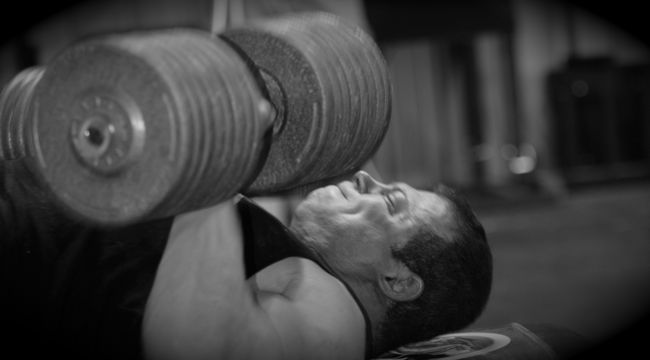
As a strength coach and strength athlete, there are a number of issues at hand when it comes to improving your game. The biggest variable has to be perseverance. By definition, perseverance is “continued effort to do or achieve something despite difficulties, failure, or opposition” (Merriam-Webster online dictionary 2010). This seems a bit straightforward, but this country's culture dictates that difficult things aren't worth doing. Like most adults, I’ve experienced difficult and trying times both personally and professionally. It’s very easy to simply throw your hands in the air and walk away. It’s much harder to stick through things and see the end result.
When it comes to perseverance, I always recall my freshman year of wrestling. I was fat, out of shape, and weak. My only exposure to wrestling involved Hulk Hogan and the WWE on Saturday mornings. I didn't have any clue what I’d gotten into my first day of practice. We were just running, but for a fat kid who doesn’t run, we might as well have been doing a marathon. I was nowhere near ready for the physical challenge that lay ahead.
We started with a three-mile run through town. This wasn’t bad. It wasn’t the worst either because we ran at a moderate pace and I could keep up. As we turned around, we started to perform intervals of 30-second sprints and 30-second jogs. This sucked to the point that I was near tears. We finished the last half mile jog as a team to the middle school gym and then did sprints and other drills. After five minutes of rest, my body was in absolute pain. My head, legs, and chest hurt like nothing I’d ever experienced before. I wasn’t sure how much more I could take.
The coach decided to cancel the sprints and instead had us run a ten-minute indoor station drill. This consisted of running to various stations throughout the school, performing an exercise, and running to the next station. Sounds easy, right? Not quite. For an above average kid, this would require some effort. For a fat kid without any strength, I was running on sheer will alone.
Push-ups, squats, sit-ups, and lunges became agonizing torture. I wanted to quit. I wanted to go home and sit on my ass. I wanted to do anything but another damn exercise. The coach saw me struggling to keep pace with the heavy weights and offered this advice: “When you can’t go another step, take ten more. Then take ten more steps after that. Success is never easy. But you have to work through the pain to get better.”
The pain in this situation is related to the training, but pain manifests itself in other ways as well—as fear, isolation, anger, resentment, frustration, hatred, and jealousy. Why does this matter? Because I’ve felt the pain of failure, the relentless pain of fear when you're unable to change a situation. I’ve been laid off and broke with mouths to feed. It's easy to roll over and give up, blame the world, and never try to accomplish anything ever again. But how does that help me? How does that benefit my family?
Sometimes you just have to get back on the horse and try again and again. Yes, it sucks. Yes, you will feel pain—mentally and physically. But you have to get up. Champions don’t quit. Champions face adversity and overcome it. My biggest fear is that my kids never apply themselves and never face adversity because they saw me quit when things got difficult. To me, this would be the greatest pain as a person and as a father.
I’m not offering some magical technique to success. What I know is that the more the world pushes, the more you need to push back. This won’t make you a millionaire, but most people give up when it gets hard. If you persevere, there are fewer competitors.









